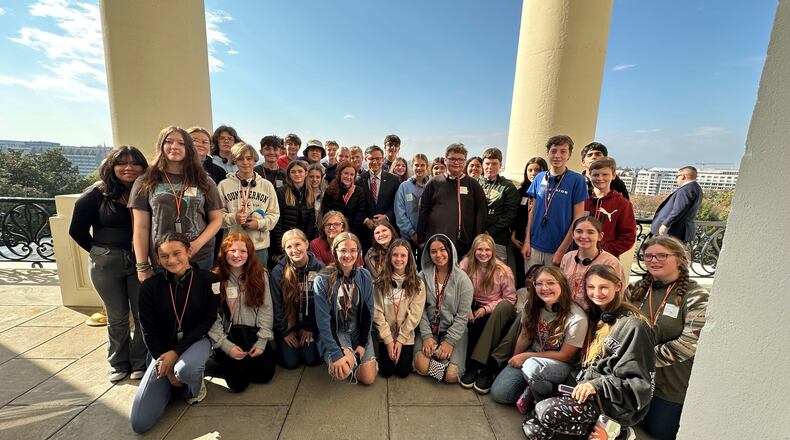Advocates of civics education have long complained that elementary school students in Georgia spend more time waiting in line for the water fountain than they do learning about their nation’s founding principles.
“Many schools spend around 30 minutes a week in social studies instruction, which is appalling,” said Randell E. Trammell, the founder and CEO of the nonpartisan nonprofit Georgia Center for Civic Engagement. The center educates and equips students to become informed citizens through such activities as mock trials, youth assemblies, leadership institutes and educational travel.
The diminished status of social studies education is not unique to Georgia. State and federal accountability systems, including the 2002 No Child Left Behind Act, have long prioritized math and reading. That’s caused a classroom shift away from social studies to free up more time for tested subjects.
Trammell serves on the state’s new Georgia Commission on Civics Education created last year by Senate Bill 220. The commission’s goal is to bolster civics education.
Among the commission’s initial recommendations is that Georgia K-5 schools teach social studies 45 minutes each day, possibly by integrating it into other subject areas, said Trammell.
At the same time that schools teach less American history, they’re under siege for the scant amount they do provide. One side insists U.S. history ought to unify Americans around inspiring narratives of freedom-seeking pioneers, idealistic revolutionaries and innovative dreamers. The other contends students ought to be exposed to America’s brutal chapters, such as the subjugation of Native Americans, the horrors of slavery and the dangers of imperialism.
Speaking from a school bus full of Whitfield County middle schoolers bound last week for Washington, D.C., to visit national monuments, museums and landmarks, Trammell said, “Our American democracy right now is challenged. We are going upstream to see where civics education is falling off, whether schools are not giving it the time it demands, teachers don’t feel prepared to teach it or teachers are afraid to teach it.”
This year marks Georgia’s first-time participation in the National Civics Bee, an annual competition that kicks off today in which middle school students are tested on fundamental concepts of American democracy, history, geography and economics. ”We are sounding the alarm on the declining civic knowledge among our nation’s youth,” said Hilary Crow, vice president of civics at the U.S. Chamber of Commerce Foundation, which is sponsoring the competition.
While the marginalization of American history worries historians and business leaders, I don’t see a lot of evidence that it upsets parents. Increasingly, parents see all education as job training and fret more about whether their kids can land a job than if they can list the branches of government.
The de-emphasis of social studies shows. The Annenberg Public Policy Center’s nationally representative survey — released annually on Constitution Day, which is Sept. 17 — reported this year that 66% of Americans can name all three branches of government, 10% can name two, 7% can name one, and 17% can’t name any.
A new survey commissioned by the Pioneer Institute, a Boston-based think tank, asked Massachusetts residents — among the nation’s best educated — some of the questions that immigrants must answer in their U.S. citizenship test. The average score was a D. Only 52% of the Bay State knew the Senate has 100 members, while 55% knew a senator’s term is six years. Respondents 65 and older posted the highest scores, while people under 44 struggled to get even half the questions right.
If schools disregard their core mission of serving as a wellspring for democracy, America risks a generation ill equipped for civic life, said Jamie Gass, co-editor of a new volume, “Restoring the City on a Hill: U.S. History & Civics in America’s Schools,” and director of the Center for School Reform at the Pioneer Institute.
From its inception, public education was expected “to develop citizens, first and foremost,” he said. “The failure to prepare young people to not only participate in government, but to understand how it works is writ large.”
“We are seeing it all over the place where people are having a difficult time in the free exchange of ideas,” said Gass in a telephone interview. “Kids have to have the vocabulary of democracy to participate in a democracy.”
About the Author
The Latest
Featured



